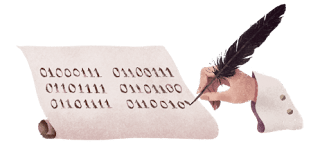By G. E. Shuman
My grandkids have always amazed me with what they know about, and what they’re able to do with the technology that surrounds them today. It astounds me, the places they can go, and the internet-borne information they can easily glean from around the globe, nearly instantaneously.
For years I’ve preached to my high school English students the importance of having some of that knowledge ‘up here’, as I would point to my head, hoping they got the idea of the relevance of actually KNOWING things. Some of them would reply with the question “Why?”, when, as I would have to agree, they would recite that they could reach into their pocket at any time for their device and have all the information, not just from memory, but in perfect, wonderful completeness, literally at their fingertips. Lately, I’m not absolutely certain I was correct in expounding on the importance of compiling knowledge, to those kids, although I still think there are things we just need to know.
Our world has never been through anything like the technological revolution we are experiencing today, but, without question, it has experienced other versions of it that were likely as disconcerting to the ‘older’ people of those times as the information age is to us present-day ‘seniors’. This was the exact case when, sometime in the 1970s, I showed my grandfather my first pocket calculator. His reaction was to input the equation 2 + 2 =, and when he received the answer, stated: “That’s almost immoral.” He said this, simply, or maybe not so simply, from his generation’s point of view, because the answer was given without any effort being exerted.
The other day I happened to see a clipart drawing of a hand, holding a quill pen, and carefully writing the ones and zeros of computer code, on a partially unrolled scroll. I thought that this image was just brilliant! The idea of writing the language of computers in one of the earliest versions of the recorded writings of mankind was just wonderful, to me. The only thing better, I think, would have been if the code had been expressed in a cave painting.
I thought, as I looked more at that scroll and the old quill pen, that whoever first invented the idea of ink and of sharpening a feather to a point, to apply the ink to a papyrus or other scroll, must have been in awe of one of his grandchildren, as that child picked up this ‘adult’ instrument and blithely drew a stick-figure picture of his family or his first effort at expressing a sunset.
Then, in our history, came the binding of books, and the greatly advanced semi-permanence of the recorded thoughts of other generations, even if they had to be painstakingly copied, a letter at a time. And then came the printing press, a great advance in allowing those thoughts to be shared with countless others, followed by movable type, which further eased and advanced the task of securing and preserving the knowledge of the ages. Those advances, as they say, are history, but I believe they’re much more than that. They’re the reason that many of us love the literature of the past. The preservation of those writings is the very reason we are even aware of what our history is.
As I said when I began, my grandkids have always amazed me with what they know about, and what they’re able to do with today’s technology. This morning I felt like that guy with the first quill pen, when my granddaughter Nahla took my iPhone out of my hand as we sat together on the couch. She turned the device on, handed it to me so I could input my password, and then proceeded to take it back, search through Netflix and YouTube, skipping ads, flipping through options, and speeding to the videos she wanted to watch with me. She was simply doing what we all have done, in using the technology of her own time. I wonder what she’ll be able to do next month, when she turns two years old.

No comments:
Post a Comment